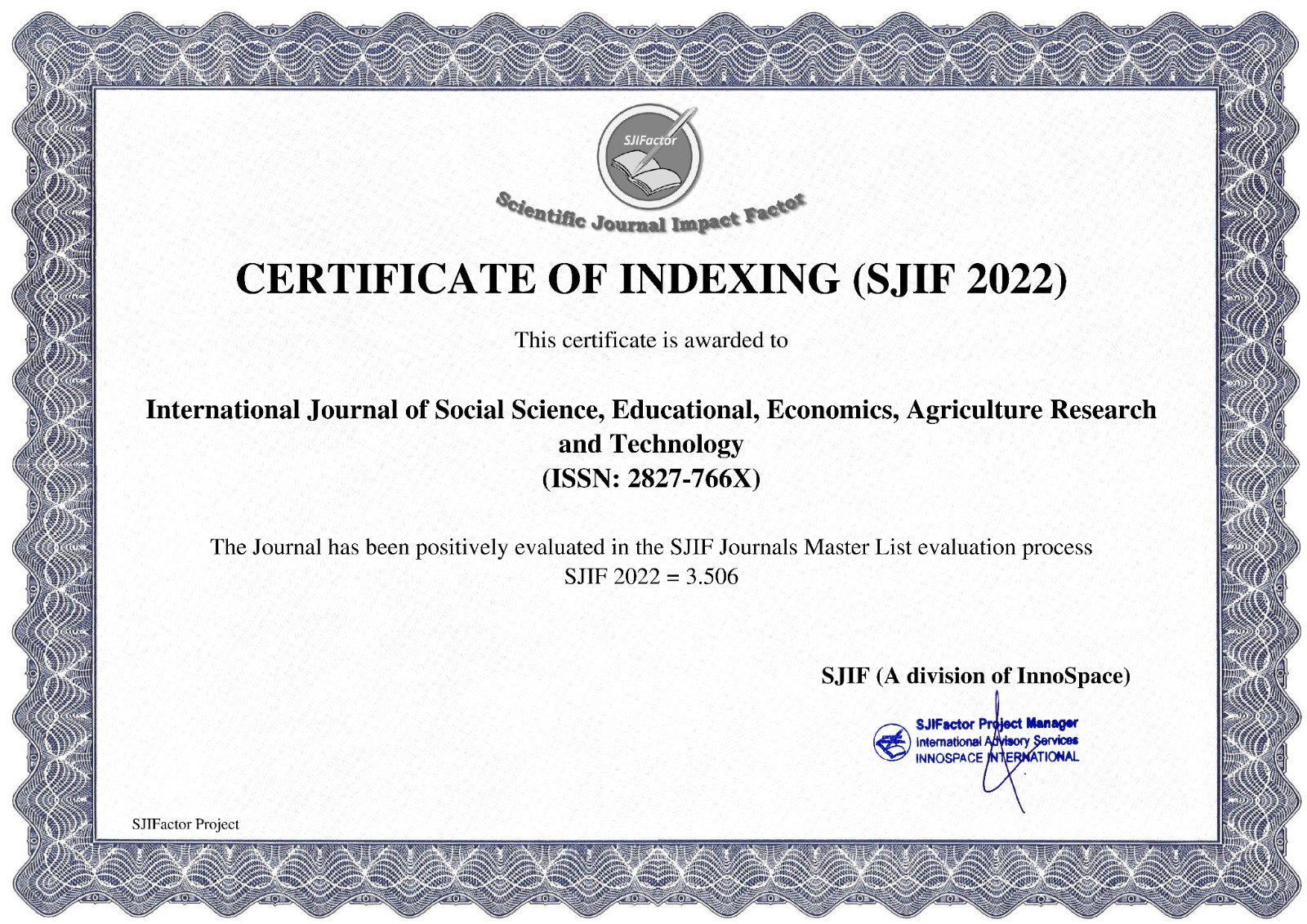CURRICULUM MANAGEMENT WITH A BLOCK SYSTEM LEARNING SCHEDULE FOR TEACHING FACTORY LEARNING IMPROVEMENT (TEFA) AT SMKN 1 SANGATTA UTARA
Main Article Content
Sukamti Sukamti
Haeruddin Haeruddin
Akhmad Akhmad
Vocational schools as vocational education institutions are expected to be able to organize practical learning processes that are relevant to the business world and the industrial world (DUDI). One of the approaches that is now developing in bridging the gap between the world of education and industry is the implementation of the Teaching Factory (TeFa). It is important to examine effective curriculum management with a block system to support Teaching Factory learning optimally. This study uses a qualitative approach with a descriptive method. Data was obtained by interviews, observations, and documentation collection. Data collection techniques use interviews, document checks, and observations. The research site of SMKN 1 Sangatta Utara in June 2025. Data collection techniques with purposing sampling techniques with respondents principals, vice principals in the field of curriculum and all heads of expertise competencies. The analysis used the interactive analysis model of Miles and Huberman (1984) which included the first stage of data reduction, data presentation and conclusion drawn. The validity of the research results is triangulated, namely comparing the results of several data collection techniques. The results of the research are curriculum management planning with the Block system learning schedule at SMKN 1 Sangatta carried out in grades X and XI, class XII is not applied to the Block system because it is more focused on preparing for the Final Assessment of Education Units and USK. The organization of curriculum management with the responsibility of the principal, coordinated by the vice principal for curriculum and assisted by curriculum staff, daily picket teachers, heads of expertise competencies and report operators. The implementation of the block system learning schedule is effective in improving TeFa learning in class XI, for X it has not been effective because it is still the basic skill competency that has not yet been targeted for the production of goods/services. Class XII is also ineffective as a block system learning schedule because it focuses on preparing for the Final Assessment of the Education Unit and the Competency Certification Test. Supervision of the block system learning schedule carried out by picket teachers, deputy principals for curriculum and school principals is not effective because some daily picket teachers do not really go around the classroom.
Amilia W. 2024. The Influence of Block System Learning with Project-based Learning Approach on Students' Work Readiness for the Culinary Expertise Program at SMKN 9 Padang. https://ejournal.indo-intellectual.id/imeij/issue/view/42. https://doi.org/10.54373/imeij.v5i4.1537
Ansari, B. I., Junaidi, J., Maulina, S., Herman, H., Kamaruddin, I., Rahman, A., & Saputra, N. (2023). Blended-Learning Training and Evaluation: A Qualitative Study. Journal of Intercultural Communication, 23(4), 155–164. https://doi.org/10.36923/jicc.v23i4.201
Fadhilah, F., Nailufar, F., Ellianti, E., Saputra, N., & Herman, H. (2025). Grand Analysis of Government Strategic Policy Design in the Field of Education in the Era of Industrial Revolution 4.0. Journal of Posthumanism, 5(3), 773–786. https://doi.org/10.63332/joph.v5i3.786
Gatiningsih W. 2020. Effectiveness of Block System Implementation in Teaching Factory Learning in Vocational High Schools. e-Journal Volume 09 Number 3 Year 2020. Graduation Edition Period November 2020. Pages 128-136. https://doi.org/10.26740/jurnal-online-tata-busana.v9i03.36376
Herman et al. (2024). Evaluation of learning in the era of society 5.0. Padang: Get Press Indonesia. https://www.getpress.co.id/product/evaluasi-pembelajaran-di-era-society-50
Khasanah, U., Herman, H., Pratama, HC, & Darodjat, D. (2024). THEMATIC LEARNING: CONCEPT, APPLICATION AND ASSESSMENT. Surakarta: Tahta Media Publisher. Retrieved from https://tahtamedia.co.id/index.php/issj/article/view/785
Maulina M., Yoenanto NH 2022. Optimizing Link and Match as an Effort to Relevance Vocational High Schools with the Business World and Industrial World (DUDI). Journal of Accountability of Educational Management. Vol.10 No 1 (28-37). Journal://Jornal.uny.ac.is/index.php/jamp. DOI: 10.2831/jamp.v.10i1.48008
Mile and Huberman. (1984). Qualitative Data Analysis: A Sourcebook of New Methods. Beverly Hills, CA: Sage Publications.
Saragih, N., Sherly, S., & Herman, H. (2024). The Concept of SWOT Analysis in Improving the Quality of Service and Parental Satisfaction of the Private Kindergarten Institution RK Bintang Timur Pamatang Raya. Attractive: Innovative Education Journal, 6(2), 29–35. https://doi.org/10.51278/aj.v6i2.1094
Setiawan, B., & Arifin, Z. (2019). Teaching Factory as a Production-Based Learning Model. Malang: Literasi Nusantara
Sinaga, M., Sherly, S., & Herman, H. (2024). The Influence of Altruistic Leadership Style and Class Supervision to Increase Teacher Job Satisfaction at Elementary Schools in the Siantar Region Under the auspices of YPK ST. Yoseph Pematangsiantar. Bulletin of Community Engagement, 4(2), 1–7. https://doi.org/10.51278/bce.v4i2.1089
Sinaga, M., Efendi, E., Sherly, S., Siregar, L., Butarbutar, M., and Herman, H. (2024). The Effect of Altruistic Leadership on Competencies with Self Efficacy as Intervening Variables for the Principal by YPK St. Yoseph Medan in Pematangsiantar. Sarcouncil Journal of Education and Sociology, 3(10), 1-9. https://doi.org/10.5281/zenodo.13899767
Suyatno. (2017). Teaching Factory Learning Management in Vocational High Schools. Yogyakarta: Deepublish.
Sugiyono. (2016). Innovative and Effective Learning Models. Bandung: Alfabeta.
Suprayogi D. (2018). Study of the block system learning scheduling model in automotive light vehicle engineering at SMK Negeri 1 Singgahan Tuban. http://repository.um.ac.id/id/eprint/43554
Zulkifli, M. (2018). Effectiveness of Using Block System in Learning






















